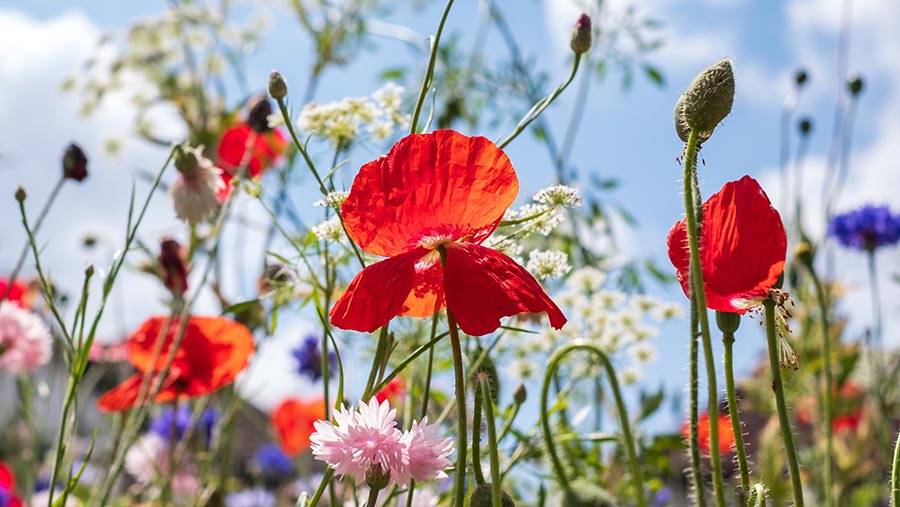Opinion: Farmers can’t pay for society’s ecological conscience
 © Lois GoBe/Adobe Stock
© Lois GoBe/Adobe Stock Biodiversity continues to decline across the UK.
Agriculture and climate change are the main drivers according to the report recently released by the State of Nature, compiled by more than 50 wildlife and conservation organisations comprising the State of Nature partnership.
Inevitably, there’s been reflexive irritation from some in the farming community at these findings (and there’s little doubt that some of the organisations that comprise the State of Nature are often instinctively hostile towards agriculture).
Yet scant issue can be taken with the broad sweep of evidence – nature is in decline globally, including in these isles.
With agriculture taking up to 70% of our land area, it’s inevitable we play a part in that.
See also: Opinion – we should hang our heads in shame at our safety record
However, the authors also acknowledge we are making progress towards “nature-friendly farming”, though the scale of investment is paltry versus the scale of the challenge following decades of “policy-driven management practices which have had major negative impacts on nature”.
This is what farmers have been saying for years, most recently concerning the vertiginous underfunding of Environmental Land Management.
Some extremists criticise farmers as being solely to blame for the environmental ills of the world.
The reality is that most recognise the impact food production has on nature is directly correlated to the demands placed on farmers for ever cheaper, ever more plentiful food to feed an ever growing population.
You get the food system you pay for, and we are paying bottom dollar.
Yet, as the report acknowledges, solutions to biodiversity decline exist, with “good evidence that well-designed agri-environment schemes [AES] can benefit nature”.
My experience of the GWCT’s Allerton Project, a research and demonstration farm at the heart of AES development for three decades, supports this.
Areas of farmed land managed for nature can have a positive impact on biological diversity in the farmed landscape.
Providing invertebrate habitats, pollen and nectar sources, winter bird feed mixes and buffer strips benefits not only nature, but carbon accounting, field efficiency and even overall profit.
Allerton shows how to achieve modern, productive farming alongside a thriving natural environment. So why aren’t we all doing it?
It isn’t that farmers lack the will. The rapid proliferation of AES agreements in recent years and farmer-led cluster groups to enact environmental gains on a landscape scale are testament to that.
It’s that we lack the financial means to carry society’s ecological conscience on our shoulders, a point of bipartisan agreement across the spectrum from the State of Nature to the NFU.
Indeed, only recently the RSPB called for a budget of at least £4.4bn for nature-friendly farming in the UK (a number subsequently echoed by the Liberal Democrats).
So, is the State of Nature criticising farmers? No, no more than it’s criticising the climate above our heads.
Its real targets are the politicians and corporates who continue to voice platitudes about our natural world, but do nothing to support those on the ground to act.
Take this report not as a critique, but as more power to our elbow in advocating for a sustainable financial settlement for food, farming and the environment.
